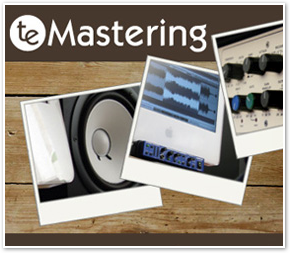




Stuff to Share is our studio blog featuring industry news, equipment reviews, production tips from our engineers and other useful music-related links, enjoy!



© Tenth Egg Productions 2009


music mastering

Tips and tricks from our engineers to help you with your music making


Industry news, useful links and what’s going on at Tenth Egg





Studio Stuff : Music Copyright Basics
22/07/09




Share us with your friends

A different approach to music production.

Copyright law is a phrase capable of inducing fear and boredom in equal measure yet as creative professionals copyright, and the wider notion of intellectual property, are the currencies which which we do business. In this piece I'm going to try and provide an introduction to copyright law essentials.
What is Copyright?
In a nutshell copyright is your exclusive right, protected by law, to control your original work, including it's publication, distribution and adaptation. As a song-writer this gives you control over the reproduction, performance, and transmission of your music, lyrics and sound recordings and the exclusive right to permit derivative works i.e. sampling, remixing or covering. It's also provides your right to sell or assign this control to a third party.
In the UK, copyright lasts for the lifetime of the author plus 70 years, after which the work becomes public domain and can be freely copied, re-packaged and re-sold by anyone who wishes to. Although the system is far from perfect it has undoubtedly been effective in creating a legal framework that provides an incentive to create original works.
Protecting your copyright
Copyright on your work is automatic and in theory nothing more than a © John Smith or such like should be needed to warn off any would-be infringers of your intellectual property rights. However, in the event of a court dispute the burden of proof will fall on you demonstrate beyond doubt that you are the legitimate copyright holder.




Share us with your friends
It is a popular myth that by keeping good record, in-progress material and posting a copy of your final CD to yourself are sufficient proof of copyright (using the postage mark for dating). While this certainly can't hurt your case, because of the potential for foul play (such as opening and re-sealing the envelope) or falsifying records, it's not a method that can be relied upon solely.
Formally registering your work with a third party such as the UK Copyright Service is the best proof of copyright. Basically you send a copy of your final work to them to store in their archive and in the event of a legal dispute they can act as independent witness, providing the necessary evidence to support your case.
The process does involve a small fee, usually somewhere between £5 - £10 per year for each work you wish to register. Although it makes sense to initially protect any work you feel may be valuable, after a few years you may decide that a work is no longer worth protecting and you can allow the formal copyright protection to lapse.
An additional protection increasingly being employed today is watermarking. This principally protects against copying because, unless somehow removed, the watermark from the original will also be present in copy. The methods range from the very sophisticated (and expensive) to simple solutions such as including your copyright information in the file's meta data.
Music - a special case
A music recording actually has two distinct copyrights associated with it, the composition / lyrics fall under one category (usually indicated with the traditional © symbol) and the sound recording another (often represented as a ℗. And of course it's possible to have separate ownership of the two copyrights. Be sure to include both © and ℗ copyright notices on your works and make the ownership of each clear when registering. In most cases you'll find that both the © and ℗ on music releases are assigned to the record label rather than the artist. The same boiler-plate legal notice is also found with small variations on:
"© 2009 Joe Blogs Records ℗ 2009 Joe Bloggs Record All Rights Reserved. Unauthorized copying, hiring, lending, public performance and broadcasting of the record prohibited."
You will want to include something similar on your own productions.
Music copyright also brings the potential added complication joint ownership of copyright, as is the case of songs written as a band. In these instances a clear written agreement is best to ensure that ownership is clearly defined and what happens in the case of a breakup or an individual member leaving. Although you can put one of these together yourself it's best to have a lawyer look it over if you're serious about making it legally binding.
Licensing
Licensing is a copyright-holders means of letting third parties use his or her work legally, without fear of prosecution under copyright law, whilst still retaining control. The license will set out the terms and conditions of use including the length of time the agreement is valid for and the geographical territories it applies to. For example you might grant a global online distribution rights to a single company and do physical distribution deals on a country-by-country basis.
In some cases, such as distribution/ manufacture agreements and one-off uses such as music to accompany a TV Ad or Film it makes sense to sign individual agreements with each licensee, however this starts to become impractical when you start thinking about something such as radio play where you will want to be paid per play. In the UK societies such as the PRS have taken on the role of tracking use and distributing royalties to members.
Creative Commons : Licensing made easy
Sharing has developed as an important viral marketing tool in the last few years and many artists appreciate the potential of letting fans distribute and remix their music for free. However, most artists would still like to retain some level of control, such as the exclusive right to benefit financially from the sale, broadcast and performance etc. of the work. The traditional 'all rights reserved' model makes sharing tricky - step in Creative Commons.
Creative Commons was established around the idea of extending fair use and making the legal sharing, remixing and reuse of creative works easier. The license builder on their website does just that makes setting up a 'some rights reserved' (or even no rights reserved) license possible in a matter of minutes.
For example I might place a license on this article to say that it can be freely re-published and even used for commercial purposes as long as I am attributed as the original creator.
It's important to remember that Creative Commons is not an alternative to copyright or formally registering your work, it is public license that you can display with your work permitting certain extents of sharing and reuse.
What now?
Your action points to take away . . .
1. Document the creative process and keep in-progress copies as supporting evidence
2. Protect your work with a Copyright notice including your name the date and stating which rights are reserved
3. Self-register your work by sending mailing a copy to yourself or to a upstanding third party
4. Formally register your important works with
5. Register with the appropriate licensing authorities and establish your own licenses for extending fair use if you wish
6. In the event of a legal dispute consult proper legal advice and take reassurance from the knowledge that you have done your best to protect your work.
Hopefully this post has gone some way to demystify music copyright for you. Although the best effort has been made to ensure that the information contained is accurate at the time or publishing we would like to include the disclaimer that this article should not be relied upon as sound legal advice.




